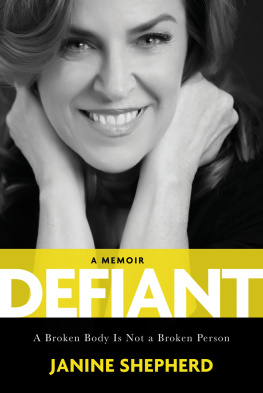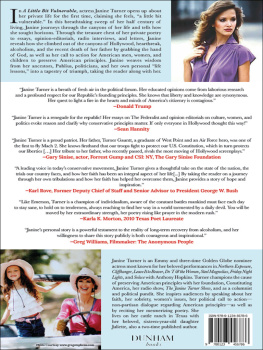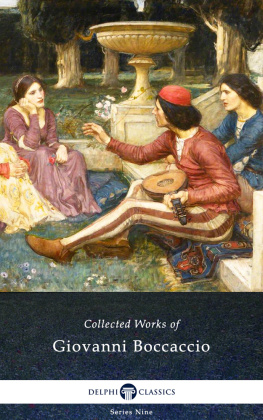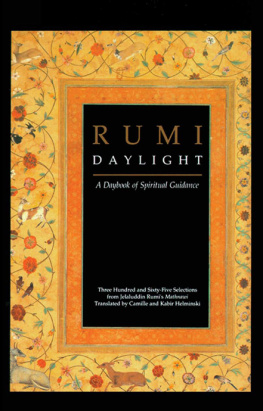Janine di Giovanni - Ghosts by Daylight: Love, War, and Redemption
Here you can read online Janine di Giovanni - Ghosts by Daylight: Love, War, and Redemption full text of the book (entire story) in english for free. Download pdf and epub, get meaning, cover and reviews about this ebook. year: 2011, publisher: Knopf, genre: Detective and thriller. Description of the work, (preface) as well as reviews are available. Best literature library LitArk.com created for fans of good reading and offers a wide selection of genres:
Romance novel
Science fiction
Adventure
Detective
Science
History
Home and family
Prose
Art
Politics
Computer
Non-fiction
Religion
Business
Children
Humor
Choose a favorite category and find really read worthwhile books. Enjoy immersion in the world of imagination, feel the emotions of the characters or learn something new for yourself, make an fascinating discovery.

- Book:Ghosts by Daylight: Love, War, and Redemption
- Author:
- Publisher:Knopf
- Genre:
- Year:2011
- Rating:4 / 5
- Favourites:Add to favourites
- Your mark:
- 80
- 1
- 2
- 3
- 4
- 5
Ghosts by Daylight: Love, War, and Redemption: summary, description and annotation
We offer to read an annotation, description, summary or preface (depends on what the author of the book "Ghosts by Daylight: Love, War, and Redemption" wrote himself). If you haven't found the necessary information about the book — write in the comments, we will try to find it.
Ghosts by Daylight: Love, War, and Redemption — read online for free the complete book (whole text) full work
Below is the text of the book, divided by pages. System saving the place of the last page read, allows you to conveniently read the book "Ghosts by Daylight: Love, War, and Redemption" online for free, without having to search again every time where you left off. Put a bookmark, and you can go to the page where you finished reading at any time.
Font size:
Interval:
Bookmark:
Luca and Bruno, without whom there would be no story, no light.
To William Callahan at Inkwell Management, who first read this book, and with the eye of a master, helped me structure and build it.
To Alba Arikha and Susannah Hunnewell, who gave me the confidence to be a better mother, who did not laugh at my fears, who sat with me for hours in emergency rooms and cafs, who told me how to cut babies nails and drink gin martinis.
Wendell Steavenson, who listened, and cooked, and listened and cooked, and cooked and listened.
To Anna Seassau and Catherine Rubin, who patiently taught me how to be a Parisian Mama, and who always laid a plate for me and Luca at their kitchen tables.
For Raquel Ramos Bundalian and Leis Montero, Lucas beloved nannies. For my parents-in-law Marie-Louise and the late Philippe Girodon, who always treated me like a real daughter. For Adam Phillips, for the patient, painful unravelling.
And for my mother, Kathryn Buccino di Giovanni, who finally became my dearest friend and confidante when I became a mother.
This book took six years to write. Any other editor or agent would have lost confidence in me long ago. So eternal thanks to Kim Witherspoon, David Godwin, David Forrer, Ash Green and Alexandra Pringle, for waiting. And to Andrew Carlson, whose patience was often tested.
To Julia Reed, who believed and believed.
And for Cindy and Oswaldo Fumei, who brought me to Lamu, gave me a bed in front of the Indian Ocean and a library in Corsica, and allowed me the peace and quiet to finish this book.
And for L. R., who brought me back from the dead.
ALSO BY JANINE DI GIOVANNI
Madness Visible
Against the Stranger
The Quick and the Dead
Zlatas Diary (Introduction)
JANINE DI GIOVANNI has covered war and conflict in Afghanistan, Israel, Zimbabwe, Zaire, Rwanda, Algeria, East Timor, Ivory Coast, Iraq, Bosnia and Kosovo, Liberia, Sierra Leone and many other places. Author of Against the Stranger (in the UK), about the first Palestinian intifada, and The Quick and the Dead, about the siege of Sarajevo, she wrote the introduction to Zlatas Diary: A Childs View of Sarajevo, which became an international best seller. She is also the author of Madness Visible, about the breakup of Yugoslavia. In 2010 she served as president of the jury of the Prix Bayeux-Calvados for war correspondents. She lives in Paris.
It is difficult to write about members of your family, people you love the most in the world, when they are still living. So I would like to say that all the important characters in this bookBruno Girodon, my mother, Ariane Quentier and othersread it before it was published and gave me their blessing. It was especially difficult for Bruno, who is the most private of individuals, to read the story of his crash and burn but his eventual triumph and sobriety. It is just one more example of his courage. He said, even if he did not agree with ways I had described events: I would not dream of changing a word. This is your story to tell and you must tell it.
Bruno always said to me when I was under some bombing raid, and he wanted to reassure me: The best journalist is the one who gets out alive to tell the story. To tell this story, I had to live it, often with pain, to the end.
Janine di Giovanni
Paris, March 2011
We arrived in Paris in rainy January, the first week of the new year, shuffling our feet like little soldiers retreating from battle. The moving boxes and crates had followed us from places where there really was warthe Ivory Coast, Iraq, Sarajevo and Afghanistanand were filled with remnants of the life that both of us were trying to leave behind.
The boxes were tall and foreboding. Mine were cardboard from an overpriced shipping agency in London. The movers came to my Notting Hill flat one afternoon and wrapped my entire London life in plastic and paper, nearly twenty years of it sealed away in boxes. They packed everything, even lipstick-stained cigarettes left behind in ashtrays from a dinner party the night before.
Brunos crates were more solid. They were wooden and imposing and came by ship from Abidjan. Together, our combined possessions lined the dining room of our rented apartment on the Right Bank, so there was no room to walk around unless you shimmied between them. Unpacking them seemed a distant chore, impossible, something that would happen far away in the future.
Inside my boxes were pots and pans with burn marks from omelettes that were left unattended for too long; velvet dresses worn once or twice at a forgotten London fancy-dress party; down-filled coats and sleeping bags still lightly coated in dust. There were hiking boots with red mud from Afghanistan; my mothers delicate china tea set; my black-and-white photographs from Africa and the Middle East and the Balkans. There were pieces of a disassembled wooden Shaker-style chair I had bought with a previous boyfriend, ready to be reassembled in Paris, and piles of old, worn linen sheets bought in Ireland and Rome. There were towels and dishes, pie plates with bits of burnt pastry still left on them and hundreds of books.
I had left the flat where I had lived for a dozen years empty except for the bed. That was staying behind; I could not bear to bring it to my new life. I had inherited it from an Irish girl, a banker, who had fled to Dublin with a broken heart, and it seemed time to pass it on again, this time to the blonde German lodger, a solemn psychoanalyst, who was renting my flat.
Also inside the boxes were things that would only make sense to me. Painful stiletto heels which were bought in New York on a whim and worn only once; an ashtray stolen from a hotel in Algeria; some bits of metal shrapnel twisted like an odd sculpture; a packet of love letterssome of them faxes, faded with timetied with a pale pink ribbon; and two flak jackets with Kevlar inserts to protect the chest and groin and shoulders from bullet wounds.
There were also two helmets with my blood group taped on the front and carefully marked in indelible ink; a nylon bag of medical supplies; packets of the antibiotic Ciprofloxacin; a buddy injection of a liquid opiate that I had stolen from a miserable red-headed American soldier before leaving Kuwait for Basra. There was a satellite telephone and two digital cameras that I had never learned how to use, still in their boxes with the instructions. There was a waxy chemical weapon suit, wrapped in plastic and tied with elastics; an unused gas mask; and maps of Baghdad circled in red at strategic points.
There were eighteen black-covered notebooks scribbled with names like Ali and Bassam and Mona and Ahmednames of people I had interviewed in what seemed like another lifetime, and my canvas boots, still full of sands from the western desert in Iraq.
Brunos packing cases were more exotic than mine. His boxes were filled with things Claude Lvi-Strauss might have collected during his long and lonely voyages. There were bits of woven fabric in equatorial colours; long, feathered arrows from Brazil; black-and-white shimaghs from the Middle East; pink-and-white shells from the beaches near Grand-Bassam, outside of Abidjan; green and red and black beads from Mali; a dried-out starfish that still smelled of the sea; teak tables and mirrors with ivory inlays; brass trunks; a heavy white blanket from Ethiopia; and ancient Buddha heads from Afghanistan and Burma. He had a long cloak from the Tuaregs in the Sahara, and he knew how to wrap it so that he looked, as he put it, like a man from the desert.
There were six brass cups from somewhere in Central Asia. There were lapis lazuli necklaces from Iraq and prayer rugs from Kurdistan. There was a metal box full of photographs which he kept secret. There was his name written in Greek on a gold plate which an old girlfriend, a lawyer, had made for him. And there were rugs from a trip to Afghanistan where we had both met by chance and then dramatically split up, for absolutely the last time, I had thought. We were slowly, and with great tentativeness, lifting our old lives from the boxes and trying to make room for them in this new and frightening life.
Font size:
Interval:
Bookmark:
Similar books «Ghosts by Daylight: Love, War, and Redemption»
Look at similar books to Ghosts by Daylight: Love, War, and Redemption. We have selected literature similar in name and meaning in the hope of providing readers with more options to find new, interesting, not yet read works.
Discussion, reviews of the book Ghosts by Daylight: Love, War, and Redemption and just readers' own opinions. Leave your comments, write what you think about the work, its meaning or the main characters. Specify what exactly you liked and what you didn't like, and why you think so.






